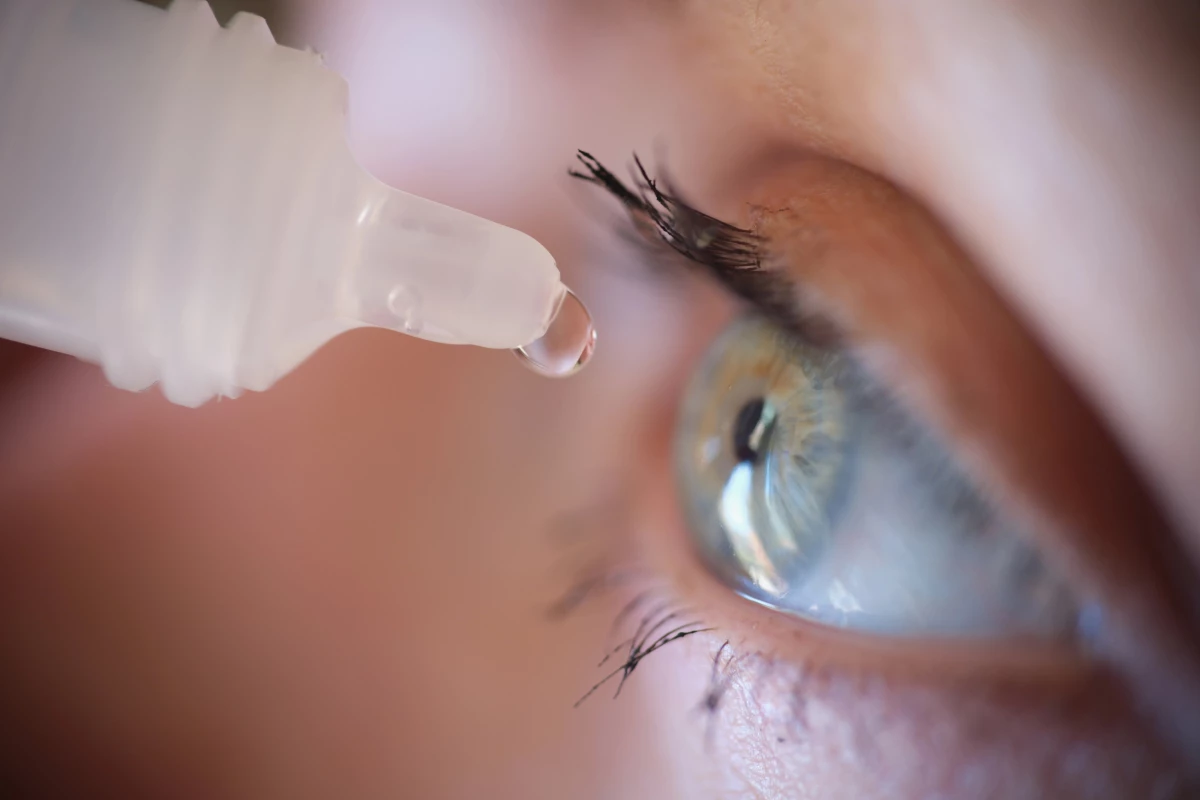The first aceclidine-based eye drop to improve near vision in adults with presbyopia, which affects more than 100 million adults in the US alone, has been approved by the Food and Drug Administration (FDA) and will be available within three months.
Known as VIZZ, from pharmaceutical company LENZ, the drops are an aceclidine ophthalmic solution that effectively treats presbyopia in adults. The once-daily drops offer relief from blurry near. vision for up to 10 hours.
"The FDA approval of VIZZ is a defining moment for LENZ and represents a transformative improvement in the available treatment options for the 128 million adults living with blurry near vision in the United States," said Eef Schimmelpennink, President and Chief Executive Officer of LENZ Therapeutics. "This significant milestone is the result of tremendous commitment and collaboration by the LENZ team and our partners, the dedication of our clinical investigators, and the contributions of hundreds of participants in our clinical trials."
VIZZ works by gently shrinking the pupil of the eye, using aceclidine. This creates a “pinhole effect” – like narrowing a camera lens — which helps bring nearby objects into sharper focus. Unlike older eye drops, this one does not significantly affect the eye’s focusing muscles, so it doesn’t blur your distance vision or cause that “zoomed-in” effect (aka a myopic shift).
Ultimately, the drops offer improved reading vision for up to 10 hours, without the need for glasses and, importantly, without the side effects of older treatments.
In 2021, the very first drops to treat this condition were launched to much acclaim, but there's a reason VIZZ drops are considered first-in-class. Vuity (pilocarpine hydrochloride 1.25%) is a dual-action eye drop that can improve near vision but may cause side effects like brow heaviness or rare vitreoretinal issues due to the ciliary muscle activation. Aceclidine, a pupil-selective miotic, works without significantly stimulating the focusing (ciliary) muscle, creating a pinhole effect – which improves near vision without adverse outcomes seen in Vuity.
"This FDA approval represents a disruptive paradigm shift in treatment options for millions of people who are frustrated and struggling with the inevitable age-related loss of their near vision," said VIZZ clinical investigator Marc Bloomenstein, from Schwartz Laser Eye Care Center in Scottsdale, Arizona. "I believe this will be a welcome solution for both optometrists and ophthalmologists who will now be able to offer a highly effective and sought-after presbyopia treatment that could immediately become the standard of care, with a product profile that will meet our patients’ needs."
The FDA approval comes on the back of three randomized, double-masked, controlled Phase II studies featuring hundreds of participants. VIZZ was well-tolerated with no serious adverse events observed in the 30,000-plus treatment days across all three trials.
Presbyopia is, unfortunately, an inevitable condition associated with aging. Almost everyone over the age of 45 experiences this near-sight vision loss, which gradually gets worse and usually requires correction with glasses or contact lenses. While presbyopia is a gradual condition, it can progress quickly and unexpectedly, making formerly simple tasks of day-to-day tasks like reading instructions or food labels more difficult.
The therapeutics company said VIZZ is expected to be broadly available in the fourth quarter of 2025, making it the first and only FDA-approved aceclidine-based eye drop for presbyopia treatment.
"This is uniquely engineered, highly-differentiated and designed to deliver quick onset and lasting benefit for the vast majority of presbyopes," said Schimmelpennink. "As we have shown, this is not only best-in-class, but frankly, the only in a class of pupil selective ciliary-sparing myotics."
The FDA approval comes based on trial data submitted by the pharmaceutical company, so it's worth noting that published peer-reviewed reports are yet to be published. Peer-reviewed publications often follow regulatory approvals, not precede them, which is common in the field of ophthalmology and dermatology.
However, the FDA data and guidance can be found published here.
Source: LENZ Therapeutics





